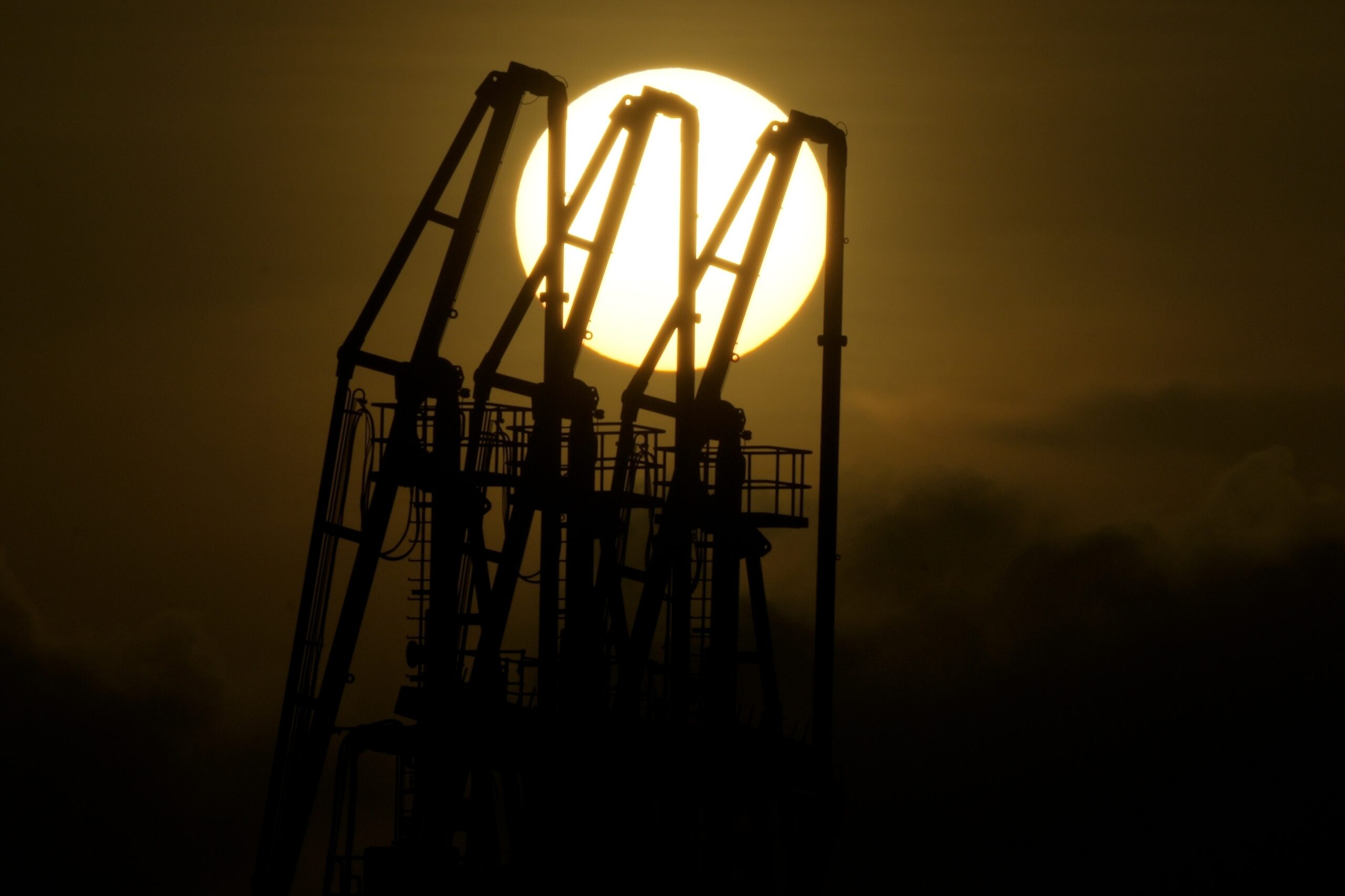Rising imported LNG prices highlight need for indigenous gas priority

The sun sets near a liquified natural gas power plant at the coastal village of Santa Clara in Batangas province, Philippines in this file photo taken on Aug. 8, 2023. The Philippines is seeing one of the world’s biggest buildouts of natural gas infrastructure. (AP Photo/Aaron Favila)
MANILA, Philippines – Prices of imported liquefied natural gas (LNG) are on the rise and now inching to 16 US dollars per million British thermal unit (MMBTu), translating to higher electricity prices, according to the chairperson of the Senate committee on energy, highlighting the need to prioritize indigenous gas.
Senator Pia Cayetano, head of the Senate committee on energy and sponsor of Senate Bill 2793, or the Philippine Natural Gas Industry Development Act, provided the data to debunk claims that current LNG prices are lower than indigenous or Malampaya gas.
Data from the natural gas market cited by Cayetano show Malampaya gas costs only 12.8 US dollars per MMBtu while LNG is currently at 15.3 US dollars.
Senator Sherwin Gatchalian earlier said LNG costs only 10.5 US dollars per MMBtu.
READ: ERC sets review of $3.3-B LNG deal
Article continues after this advertisementCayetano renewed her call for her Senate colleagues to take a patriotic stand in favor of local natural gas resources by passing SB 2793. She said the proposed legislation will ensure that the country will not be dependent on foreign fuel.
Article continues after this advertisement“Let’s take a stand. Prioritize indigenous (natural gas). Support indigenous. And buy indigenous,” Cayetano earlier said.
“It ensures a continuous and stable energy supply in the country, even or despite unpredictable events occurring in the global market,” she added.
The senator was referring to the unreliability of supply of imported LNG as a result of conflicts like the Russian invasion of Ukraine, the escalating war between Israel and Hezbollah, and weather conditions affecting LNG transport.
Cayetano said SB 2793 will incentivize the full exploration and development of the country’s indigenous natural gas resources to address energy security concerns using Filipino gas first.
She said the country’s indigenous gas resources have been neglected through the years following the discovery of the Malampaya wells off Palawan province.
She said the proposed law is key to revitalizing indigenous gas exploration which has been nearly abandoned because of the absence of clearcut policies.
“From 150 wells in the 1970s, there have been no additional drilling efforts since 2019. Are we going to let this industry die? Are we going to be dependent on imported natural gas?” she said.
She said indigenous gas is the best energy solution because it is readily available, owned by the Filipino people and is a major source of state revenue, with 60 percent of Malampaya proceeds remitted to the government.
“Simply put, it’s Filipino gas for the Filipino people,” she added.